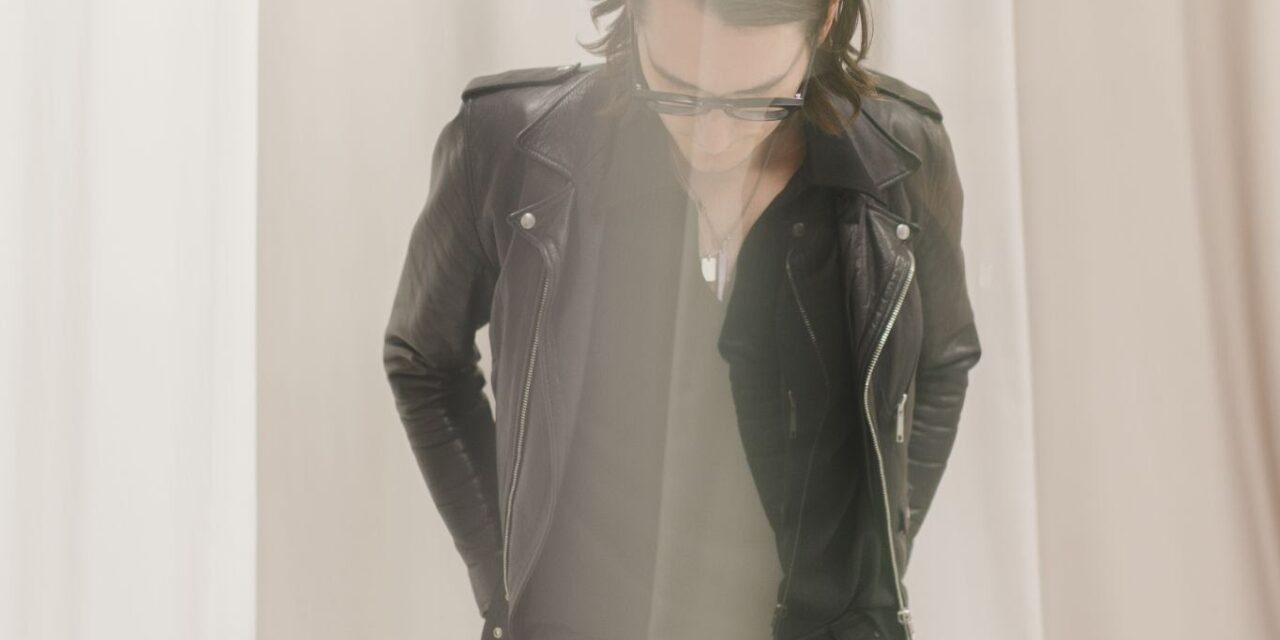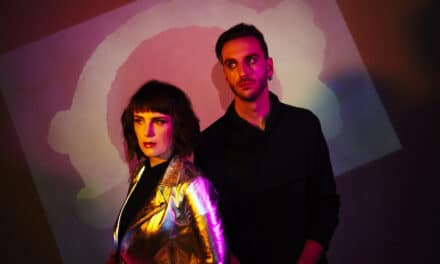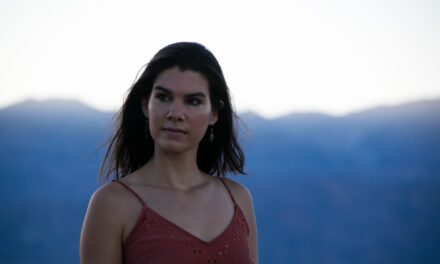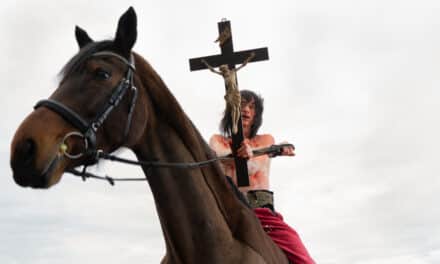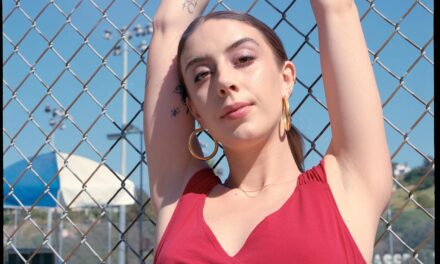Black Sands is the alter-ego recording project of Andrew Balfour, Californian bred producer, creator, and collaborator, now based in Amsterdam. The power of collaboration is the soul of Black Sands; where creative voices join forces in a common vision and mission to create something larger than the sum of its parts. Contrasting musical perspectives are invited into an aural collision as Balfour channels his dark beats into synthesis with pop and R&B vocal collaborators. Black Sands is a modern music collaboration of creative osmosis, drawing out fresh but familiar ideas to produce power-house and anthemic tracks from the artists he works with.
Formerly a touring musician with a number of alternative rock bands, Balfour nurtured and developed his sonic palette from a young age. Taking inspiration from a wide selection of genres, he unites the music of his past with more contemporary influences of The Weeknd, Billie Eilish, and The 1975. The result is an international collective ricocheting off artists in Los Angeles, London, and Bogota to creatives in New York, Amsterdam, and Berlin, forming a refined and balanced harmonization of pop and R&B.
Tell us about the genesis of your project. How did you get to where you are now?
I spent my teenage years and early 20s writing, playing and touring as a guitarist in alternative rock bands. I stopped playing music and started focusing on my professional career in marketing, technology and entertainment. After not touching a musical instrument for about 8 years, I was inspired to start writing music again just before COVID hit. While I was in those rock bands I nearly exclusively listened to rock music.
Once I stopped playing with those bands, I started to listen to pop, R&B, hip hop and just about anything and everything. My appreciation for other genres piqued my interest in music again.
Once I started writing music just before COVID hit in 2020, I decided consciously that I would do something different than what I had done before. I wanted to celebrate diversity and find ways to show that most genres in music actually have a lot of commonalities. Black Sands felt like the perfect way to brand this project – contrasting elements (lava and the ocean) coming together to create something new, yet familiar.
What does music and being an artist mean to you?
Music is one of those rare artforms that can transcend geography, culture and bring people together. It’s a powerful medium that evokes strong emotions from people. That power of connection is special. I feel fortunate that I have the ability to express myself and explore different ways to tell stories through music. Personally I believe all genres of music are beautiful and have something special about them. Black Sands is a project that tries to infuse and celebrate these different genres by creating something new yet familiar.
What are some sources of inspiration for your lyrics and storytelling?
I write all of the songs musically, but I believe lyrics are very personal and should come from the singers own heart and experience. When I was writing Afterglow I had a very specific experience of loss that I was working through. When I worked with different singers and vocalists, I made sure I conveyed what each song means to me and what message I wanted to get across lyrically and vocally. That can be challenging, so to do that I wanted to make sure the themes and stories I wanted to have told were universal and something all people can connect to. Love, loss and moving on are universal human experiences. By keeping it simple I think there’s more room to explore lyrically and creatively.
Who is an artist that you look up to more than others today?
Trent Reznor and Abel Tesfaye. I think the longevity Trent has had as a musician and artist is second-to-none. The way Nine Inch Nails music has evolved and his journey from 90s industrial rock, to now scoring movies like The Social Network and SOUL is inspirational and showcases an adaptability he brings to music. With Abel, I appreciate his similar ability to bridge darker themes or tones but infuse them with Michael Jackson levels of pop. That’s a fantastic combination that is unexpected but when you hear it, it just feels right and connects with you on a deeper level.
All time favorite record?
It’s a three-way tie for me. Thriller by Michael Jackson. The Black Album by Jay Z. L. Ron by Barkmarket.
Tell us about your latest release and how it came about
As I started writing songs for Black Sands, I was coping with the sudden death of my sister. When my family lost her, I struggled heavily. I felt a strong sense of confusion, depression, anxiety, anger, loss — you name it. But like many people who go through such a traumatic loss, I didn’t know how to process these complex emotions and talk about it. Music helped me focus that confusion and allowed me to grieve. If you listen to the first handful of Black Sands songs, they’re all about trying to process your past and how the decisions you make haunt you and become a part of you.
Afterglow is about me understanding that I will never not feel this grief or loss. Instead it’s about the moment you decide to take a step and find beauty in living and moving forward. No matter how much that paint and grief becomes intertwined into who you are, there’s hope and optimism and something beautiful waiting on the other side.
I wrote all of the tracks during the COVID quarantine last year and collaborated with a number of amazing artists and musical collaborators like Martino, Ryan Lawrie (KOOLKID, BTS) Trenton, Nick Rad (Grandson, Misterwives), Mario Borgatta (Muse, Biffy Clyro, Broods.)
You seem to be fusing several musical genres. What inspires your sound?
As you can probably tell from my favorite records and artists, I have a deep respect for all genres of music. I go through waves of inspiration that can come from film scores, architecture and design, rock music, metal music, reggaeton, pop or classical music. When I write music I start with a feeling, mood or vibe that I want to recreate. By doing this I feel like I can use different techniques or use various sounds that can help reinforce that feeling.
What are some things you do to deal with anxiety and creative blocks?
I haven’t figured out a formula for dealing with anxiety, much like everyone else. However, I do try to spend time with my partner or our two small dachshunds which help me just be in the moment. Music is also the thing that helps ease my anxiety. I feel a sense of flow whenever I go into my studio and try to create.
I have two things I do to deal with creative blocks. One, I write a musical idea every day. I give myself at least 15 minutes to just write or do something with music each day. I don’t judge that idea or tell myself I have to use it. The act of being disciplined and just doing that thing that I love to do helps me be creative and not-overthink it. By doing it every day, you’ll be amazed at what comes out and how that can remove creative blocks.
Two, I don’t force an outcome with an idea. If I need to walk away and work on something else I give myself the permission to do that. The harder I press to make a certain creative decision, the worse it can come out. I think anybody who is creative has felt this before, but I think that’s one of the worst things you can do. When you hit that moment, walk away, work on something else, have somebody else listen to the song, watch a movie, put it on the shelf for a few weeks or months — do anything else. When you come back to it you can have a fresh perspective and hear things in a new light.
Where do you see yourself in 5 years?
Continuing to work on this project with even more amazing creative people. When thinking about the purpose of Black Sands, I wanted something that is evergreen and could also be challenging for me creatively. By focusing on the collaboration and inclusion I feel like that opens up a world of possibilities for creativity. Not only have the songs been a dream to work on, I’ve been so inspired by every single person I’ve worked with. That’s something I always want to have around me.
Your style is very original and elaborate. How do you take care of your aesthetics?
I appreciate that. I was very intentional from day one about what I wanted to say and how I wanted people to feel. I’ve been fortunate to have played music almost my entire life. Because of that, I know what I want sonically. By knowing what I’m trying to accomplish from a sonic perspective, I just go out and find great people who can help me bring that sound to life and make it even better than I dreamed of.
Visually, I’m even more fortunate to have the good fortune to work with one of my best friends, Augusto Paiva @AugustoPaiv. He’s an amazing creative director and photographer who visually helped me visualize what Black Sands could be.
As they say “Nothing of great significance can be achieved by an individual acting alone.” I’ve had many amazing artists and creatives help me out along the way, including my partner Ling, Alfred Wales, Pierre Zylstra, Adam Balfour and Avery Stribling (and many more I’m sure I forgot to name.)
What was the most daunting moment in your career so far?
When I was in bands previously, I was one of five people. When you’re part of a group it’s less scary but when you’re the only person writing, leading and being the face of the songs you’re the person who puts yourself out there. People love to tell you what they like and dislike about your music and writing something so personal can leave you feeling vulnerable and exposed to the world. But to help myself face that, I remind myself being vulnerable is itself an act of courage. And in being vulnerable and putting my art out into the world I hope that I can connect with other people who have experienced similar feelings and enjoy what I’m doing.
What is the best advice you’ve ever gotten?
“You can’t make everybody happy, so focus on what makes you happy.” When I was younger I really cared about what people thought about my music — I wanted everybody to like it. When people wouldn’t like it I would be offended and couldn’t understand why they didn’t see the merit in what we were doing. Music is highly subjective and personal, and what resonates with one person may not resonate with the next. By focusing on what I enjoy and what’s important to me, I enjoy the process of creating and love when other people find the beauty in what I’m doing.
Where do you think the next game changer will be in the music industry and entertainment scene?
Two things come to mind. COVID has shown us that collaboration doesn’t have to happen in person, even though there is a special quality about collaborating in person. People from all over the world can work on music together through apps like Splice and SoundBetter. This has lowered barriers to working with incredibly talented musicians from all over the world. I’m not sure I would’ve found the amazing collaborators on Afterglow and my new tracks without these tools.
Second, licensing and sync is a massive opportunity for artists to leverage their music and build a more sustainable career. Music is vital to film, television and video as a medium. With the growing competition in the streaming video space, you’ll see a higher demand for music and a need to rethink the model in how artists monetize their music. I also think you’ll see more and more unique collaborations with artists to help score and collaborate on tracks for content.This isn’t anything new, but should increase opportunities for artists.

